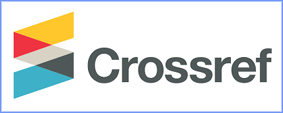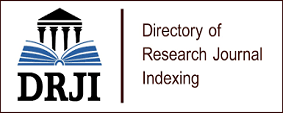Development of E-LKPD Based on Project Based Learning in IPAS Subjects to Improve Students' Critical Thinking Skills
DOI:
https://doi.org/10.61277/ije.v3i1.194Keywords:
Development, E-LKPD, Project Based Learning, Critical Thinking SkillsAbstract
his study aims to develop an Electronic Student Worksheet (E-LKPD) based on Project-Based Learning (PjBL) for the Natural and Social Sciences (IPAS) subject to enhance the critical thinking skills of elementary school students. The research was conducted at SD Negeri 4 Pringgabaya, where traditional teaching methods using printed worksheets were found to be monotonous and less engaging, leading to decreased student motivation. The E-LKPD was designed using the LiveWorksheets platform, incorporating multimedia elements such as audio, video, and interactive questions to make learning more engaging and effective. The development process followed the Research and Development (R&D) method, simplified from Borg and Gall's model, and included stages such as needs analysis, planning, product development, validation, and testing. The E-LKPD was validated by material and design experts, with results indicating high validity and practicality. Effectiveness tests conducted in small and large groups showed significant improvements in students' critical thinking skills, as measured by pre-test and post-test scores using the N-Gain score. Student and teacher feedback also indicated high satisfaction with the E-LKPD, categorizing it as "very good" for use in the learning process. The study concludes that PjBL-based E-LKPD is an effective tool for enhancing critical thinking skills and can be a valuable resource for modern, technology-integrated education.
Downloads
References
Almulla, M. A. (2023). Constructivism learning theory: A paradigm for students’ critical thinking, creativity, and problem solving to affect academic performance in higher education. Cogent Education, 10(1), 2172929.
Angelina, A., Bistari, B., & Halidjah, S. (2024). Development of Teaching Module for the Merdeka Curriculum with Nuances Critical Reasoning for Elementary School Students. Jurnal Paedagogy, 11(3), 580–592.
Anica-Popa, I.-F., Vrîncianu, M., Anica-Popa, L.-E., Cișmașu, I.-D., & Tudor, C.-G. (2024). Framework for integrating generative AI in developing competencies for accounting and audit professionals. Electronics, 13(13), 2621.
Bahri, S. (2017). Pengembangan Kurikulum Dasar dan Tujuannya. Jurnal Ilmiah Islam Futura, 11(1), 15–34.
De Leng, B. A., Dolmans, D. H. J. M., Jöbsis, R., Muijtjens, A. M. M., & van der Vleuten, C. P. M. (2009). Exploration of an e-learning model to foster critical thinking on basic science concepts during work placements. Computers & Education, 53(1), 1–13.
Fahrurrozi, M., & Mohzana, Z. (2020). Pengembangan Perangkat Pembelajaran Tinjauan Teoretis dan Praktik.
Franco-Mariscal, A. J., Cano-Iglesias, M. J., España-Ramos, E., & Blanco-López, Á. (2024). The ENCIC-CT model for the development of critical thinking. In Critical thinking in science education and teacher training (pp. 3–42). Springer.
Haleem, A., Javaid, M., Qadri, M. A., & Suman, R. (2022). Understanding the role of digital technologies in education: A review. Sustainable Operations and Computers, 3, 275–285.
Isnaeni, Y. L. (2024). E-Modules of Natural and Social Sciences (IPAS)“Changes in Energy Forms” with FlipHTML5 to Improving the Student Motivation of Elementary School. Jurnal Penelitian Pendidikan IPA, 10(8), 5687–5693.
Jia, X.-H., & Tu, J.-C. (2024). Towards a new conceptual model of AI-enhanced learning for college students: The roles of artificial intelligence capabilities, general self-efficacy, learning motivation, and critical thinking awareness. Systems, 12(3), 74.
Okpatrioka, O. (2023). Research and development (R&D) penelitian yang inovatif dalam pendidikan. Dharma Acariya Nusantara: Jurnal Pendidikan, Bahasa Dan Budaya, 1(1), 86–100.
Putri, S. A. N., Riastini, P. N., & Paramita, M. V. A. (2022). Project-Based Learning Electronic Thematic Student Worksheets (E-Book PJBL) Improving Critical Thinking Skills. International Journal of Elementary Education, 6(3), 501–510.
Saro’i, M. (2024). Pengaruh Pendekatan Pembelajaran Berbasis Proyek terhadap Hasil Belajar Siswa SMA: The Influence of Project-Based Learning Approach on High School Students’ Learning Outcomes. Ijelap: Indonesian Journal of Education, Language, and Psychology, 1(1), 1–10.
Sher, P. J., & Lee, V. C. (2004). Information technology as a facilitator for enhancing dynamic capabilities through knowledge management. Information & Management, 41(8), 933–945.
Sinaga, A. V. (2023). Peranan teknologi dalam pembelajaran untuk membentuk karakter dan skill peserta didik abad 21. Journal on Education, 6(01), 2836–2846.
Song, Y., Roohr, K. C., & Kirova, D. (2024). Exploring approaches for developing and evaluating workplace critical thinking skills. Thinking Skills and Creativity, 51, 101460.
Umaroh, L. N., & Bahtiar, M. D. (2022). Pengaruh pengenalan lapangan persekolahan (PLP), penguasaan teknologi informasi, dan penguasaan materi akuntansi terhadap kesiapan mahasiswa menjadi guru akuntansi di era revolusi industri 4.0. Jurnal Pendidikan Akuntansi (JPAK), 10(1), 17–30.
Usman, H., Suntari, Y., & Wulandari, Y. (2024). The Need for the Development of PjBL-Based Social Studies E-LKPD for Elementary School Students. MIMBAR PGSD Undiksha, 12(2), 390–398.
Yassin, E. (2024). Examining the relation of open thinking, critical thinking, metacognitive skills and usage frequency of open educational resources among high school students. Thinking Skills and Creativity, 52, 101506.
Zeybek, G. (2025). The relationship between critical thinking standards and critical thinking attitudes of teacher candidates. International Journal on Social and Education Sciences, 7(1), 36–57.



















